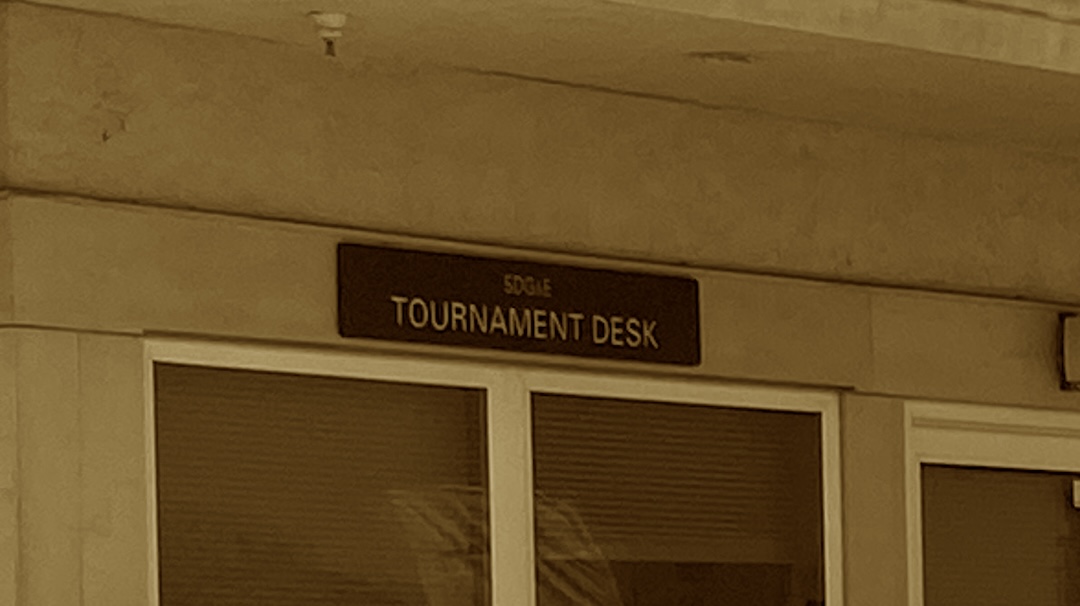A couple of interesting rules scenarios arose in the WTA 1000 event in Dubai last week. A common thread runs through a phantom let call, a late overruled call, and a breakdown of good sportsmanship.
During a first-round match between Anna Kalinskaya and Storm Hunter, Hunter’s serve crossed the net as an audible let call was heard. She immediately diverted Kalinskaya’s return to the ball kid at the net and turned to get another ball for what she thought would be another serve. Unfortunately, the let call had come from an adjacent court.
An interaction between Anna Kalinskaya and Storm Hunter in the 1st round in Dubai after Hunter gives up on a point upon hearing a Let call from another court: “Are you happy to take that point?” “Yes, I am” 👀
byu/2PointOBoy intennis
The ITF Rules of Tennis and associated case decisions clearly indicate that a player cannot be hindered by a sound from an adjacent court or spectators. Chair umpire Pierre Bacchi was absolutely correct in not calling hindrance in this scenario. In fact, that decision was so uncontroversial that I couldn’t find the chair umpire’s name in any published account of the match.
However, Bacchi was also involved in a second highly publicized incident that occurred later in the week in a match between Coco Gauff and Karolina Pliskova. Gauff challenged an out call on a serve that Bacchi had made from the chair. After the electronic line system overturned it, he ruled that Pliskova had been hindered and the point would be replayed rather than awarded to Gauff. Video replay shows the ball was well off Pliskova’s racquet and headed into the net before the audible call occurred.
[The Tennis Letter] Coco Gauff is not happy with the umpire in her match against Pliskova.
byu/YoungTroubadour intennis
Unlike the Hunter-Kalinskaya incident, the call from the Gauff-Pliskova match got widespread media attention. It was a much higher profile match on a stadium court and was featured on the Tennis Channel broadcast. Additionally, Gauff argued with Bacchi and made a validly framed request to speak to the supervisor. Since Gauff phrased her request as a question of tennis law, Bacchi should have called the supervisor, but he did not.
For those of us who track such things, that makes three officiating errors on this same point:
- A bad line call.
- A bad (non) hindrance call.
- Failure to honor a valid request by a player to speak to the supervisor.
It should be noted that it would not have changed the outcome had the supervisor been summoned. There would have been universal agreement that tennis law dictates that in this situation, the point stands if the call was made after the ball was heading toward the net. However, the referee could not overrule Bacchi’s judgment of whether the call was late or not because that is a question of fact.
Both the Hunter-Kalinskaya and Gauff-Pliskova incidents raise interesting questions of sportsmanship. There was an opportunity for both Pliskova and Kalinskaya to take the ensuing debate down another path. If Pliskova knew that the call had come late, she could have conceded the point. However, in a bang-bang situation it isn’t clear she had that perception.
The Kalinskaya situation is much different. Unless she didn’t hear the loud and unfortunately timed let call from the adjacent court, the principles of good sportsmanship dictate that she should have granted the let. In fact, Hunter put her on the spot by asking her if she was happy to take that point. Gauff never posed a similar question directly to Pliskova, though that was unlikely to change the outcome.
As a relatively hot take that will be unpopular with casual tennis fans, Hunter handled her situation better than Gauff. Hunter did everything she could to argue her case, accepted her fate, and quickly moved on. While Gauff was wronged by errors from the chair, there was no need for the prolonged debate, and it could potentially have been a distraction rather than an inspiration. In fact, it is results-oriented thinking to assert that Gauff handled it well simply because she went on to win the match. The opposite outcome was equally possible.
In any case, Bacchi had a rough week in the chair.
- ITF Rules of Tennis, International Tennis Federation, 2024




“I think it just fueled me,” the U.S. Open champion said.
Hear, hear.
For the Hunter/Kalinskaya match, Bacchi did everything correct. Hunter messed up is the bottomline, and to her credit, though there’s no reason to give her credit since it was her error, she didn’t prolong on her mistake. Kalinskaya isn’t obligated in any way to give Hunter a redo, especially since it was Hunter’s error. And it wasn’t bad sportsmanship either. It’s unfortunate if Hunter thought Bacchi made a let call, but it was still Hunter’s error.
The Gauff situation is different. Gauff made something minor into something major. This was unnecessary and she was on the verge of tears. But to her credit, she still won the match. Bacchi made a mistake in calling Gauff’s serve out and not giving Gauff the point. But, these types of points are tough in judgment. Again, Pliskova is under no obligation to give the point to Gauff. This doesn’t happen in almost any other sport, so why do we expect tennis players to do so? It’s great if Pliskova did, though she might not be completely sure herself when the call was made. But, nobody should blame Pliskova for not doing so if she doesn’t.
My understanding of calling a supervisor is that it’s only granted over a rule dispute. There was no rule dispute in the Gauff match, only a matter of judgment. If so, I applaud the Bacchi for standing his ground. There was no reason for the supervisor to be called. Gauff was just upset and acting extreme.